people
You'll find us at Integrated Science Lab (IceLab) located on the 3rd floor in Naturvetarhuset, Umeå University, Umeå, Sweden.
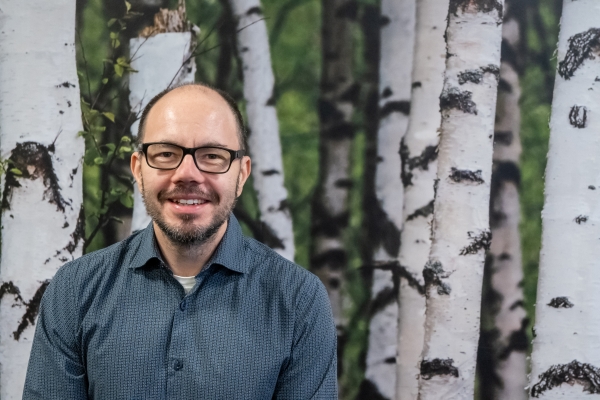
Group Leader
Ludvig has been an icelab group leader since 2011. He is interested in problems at the interphase between physics and cell biology, combining simulations and analytical work.
Before becoming an associate professor at the physics department in Umeå, Ludvig worked as a postdoc together with prof. Alexander Grosberg at New York University. There, Ludvig got to know about the DNA folding problem which today is a large part of his research. Before moving to New York, Ludvig was a postdoc in prof. Kim Sneppen’s lab, Center for Models of Life, at the Niels Bohr institute (Copenhagen, Denmark). There he worked on various problems such as evolution of metabolic networks in bacteria, protein aggregation in cells, molecular crowding in one dimensional systems (such as protein diffusion along DNA), and information spreading in social systems. Ludvig did his undergraduate and PhD studies at Chalmers University (Gothenburg, Sweden) where he modeled reaction-diffusion processes in nanofluidic networks.
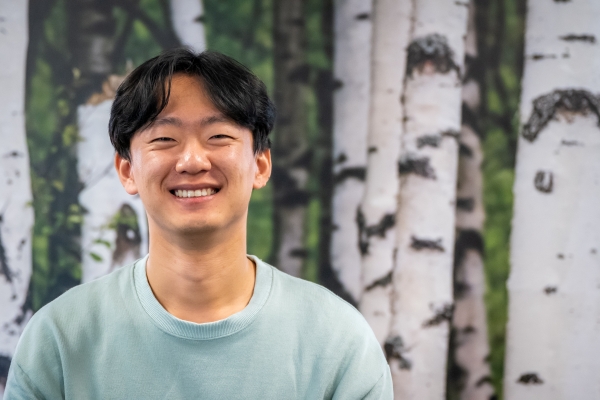
Kempe Postdoc
Juhee joined IceLab in 2023 and works with Ludvig Lizana and Jonathan Klaminder at SLU. They are modeling the arctic soil-pore network and its association with material flow.
“I received my Ph.D. in the computational many-body physics group at Gwangju Institute of Science and Technology, where I studied statistical physics on quantum systems. However, after graduating, I was keen to work on problems that are more relevant to our daily lives. I joined the statistical physics on ecology and evolutionary dynamics group at the Asia Pacific Center for Theoretical Physics APCTP(and later moved to Inha University) and studied the evolution of microbiomes under artificial collective selection (SPEED group).”
Juhee is interested in studying how microbiomes and environments cooperate during evolution, and developing methods to describe problems that have different timescales in dynamics. Additionally, he is fascinated by the application of quantum mechanics methodologies in a wide range of research areas.
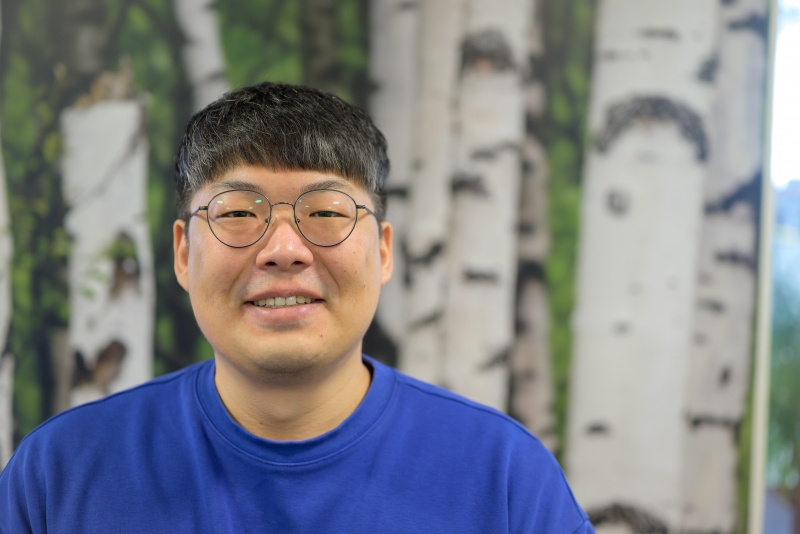
Carl Trygger Postdoc
Seong-Gyu joined IceLab and Ludvig Lizana’s group in 2024. They are developing mathematical models for epigenetic clocks and DNA methylation in humans.
“I got my Ph.D. in statistical physics from Sungkyunkwan University, South Korea. My research interests are broad. During my Ph.D., I studied collective behaviors in physical, biological, and social systems. After graduation, I became as a postdoc at the Asia Pacific Center for Theoretical Physics APCTP, where I studied ecological models using statistical physics methods. Later, I moved to at the Korea Institute for Advanced Study KIAS, to learn more about network structures and random graph ensembles.”
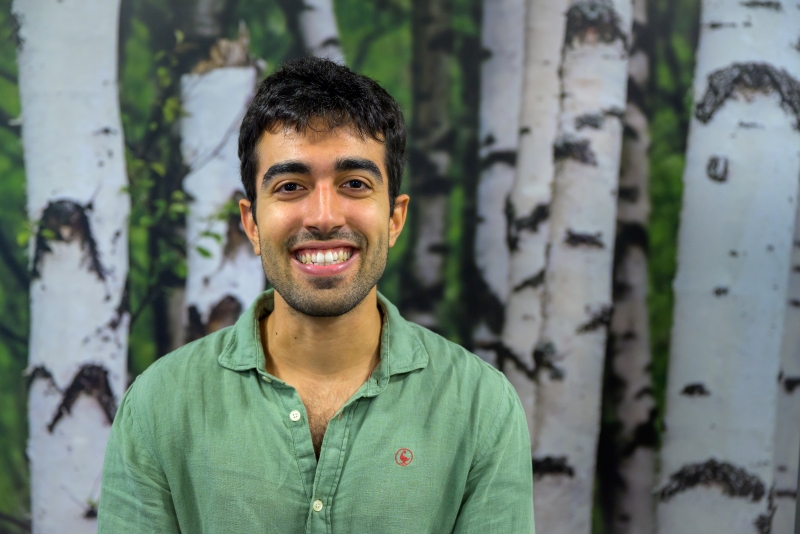
PhD Student
Antón began his studies in physics in Santiago de Compostela, Galicia, in northern Spain. During an Erasmus exchange in Umeå, Sweden, he developed a deep connection with the city, drawn in by its winter landscapes and natural surroundings. After that experience, he decided to stay in Umeå to study a master’s degree in physics. During his studies, Antón became increasingly interested in modeling systems beyond the traditional scope of physics.
Now pursuing his PhD, Antón works on developing mechanistic models of biological processes, focusing specifically on DNA methylation and its role in gene regulation. Through his research, he aims to understand better how this process influences aging and the development of diseases.
Outside the lab, you’ll often find him cross-country skiing in winter or hiking in the summer. He also practices Brazilian jiu-jitsu and enjoys spending time with a good book.
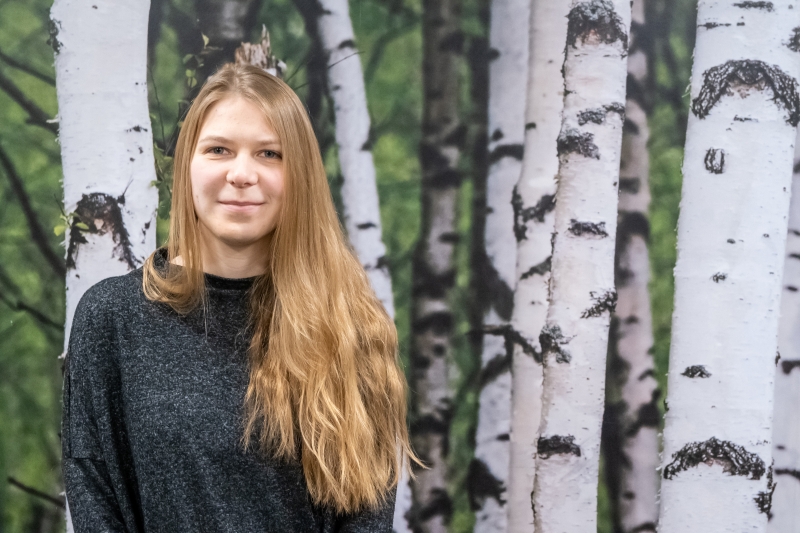
Alumni, PhD
In 2019 Moa started her PhD with Yuri Schwartz from the Department of Molecular Biology, with Ludvig Lizana as co-supervisior. Moa has a master’s degree in Engineering Biotechnology from Umeå University, with a specialization in bioinformatics.
She is interested in epigenetics, especially the function of Polycomb Group proteins. Working on two projects with different approaches she hopes to reach a fuller understanding. One is the analysis of experimental data to see how the right genes are turned off in human cells. The other is modelling the mechanisms of Polycomb Group proteins to understand how they achieve their function.
Moa loves stories in all formats, from novels to animation and video games. Her format of choice for her own creations is digital drawings.

Alumni, PhD
Born in a northern city in Sweden called Skellefteå, Lucas always had a great interest in anything scientific. As such, he started studying at Umeå University directly after high school and got his masters degree in Engineering Physics in 2019. This education gave Lucas a strong interest in stochastic processes, neural networks and fluid mechanics. Loves coding on complex problems and collaborating with people to come up with new interesting ideas.
Starting his PhD studies in 2019, Lucas tries to understand the folding dynamics of the DNA and how biological processes, such as the time it takes for a protein to search along the DNA, are affected by changing active and inactive parts of the DNA.
In his spare time Lucas enjoys choir singing, working on personal programming projects and listen to classical music.